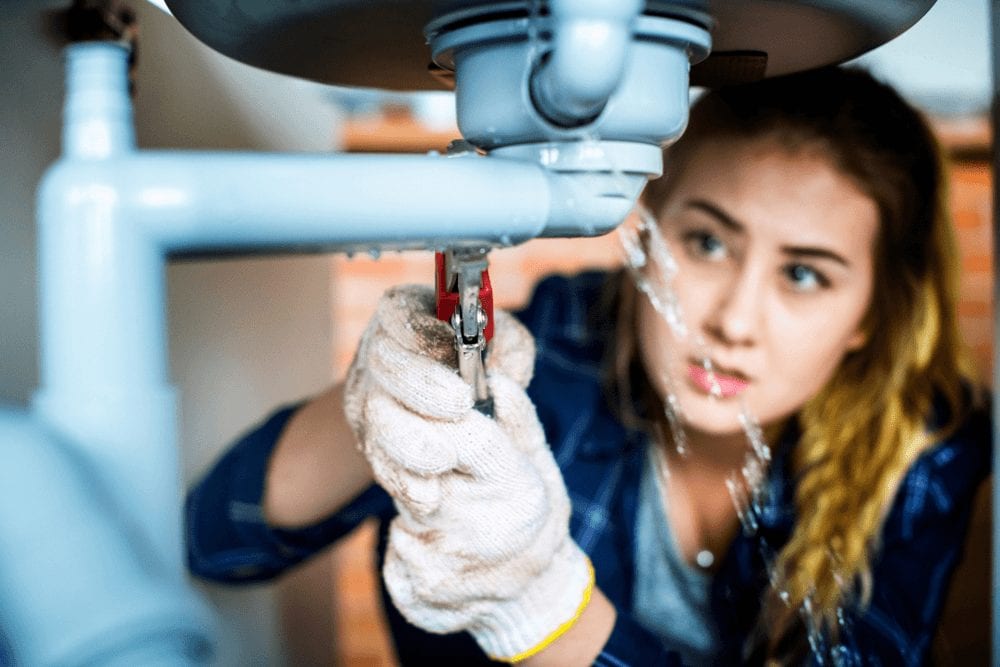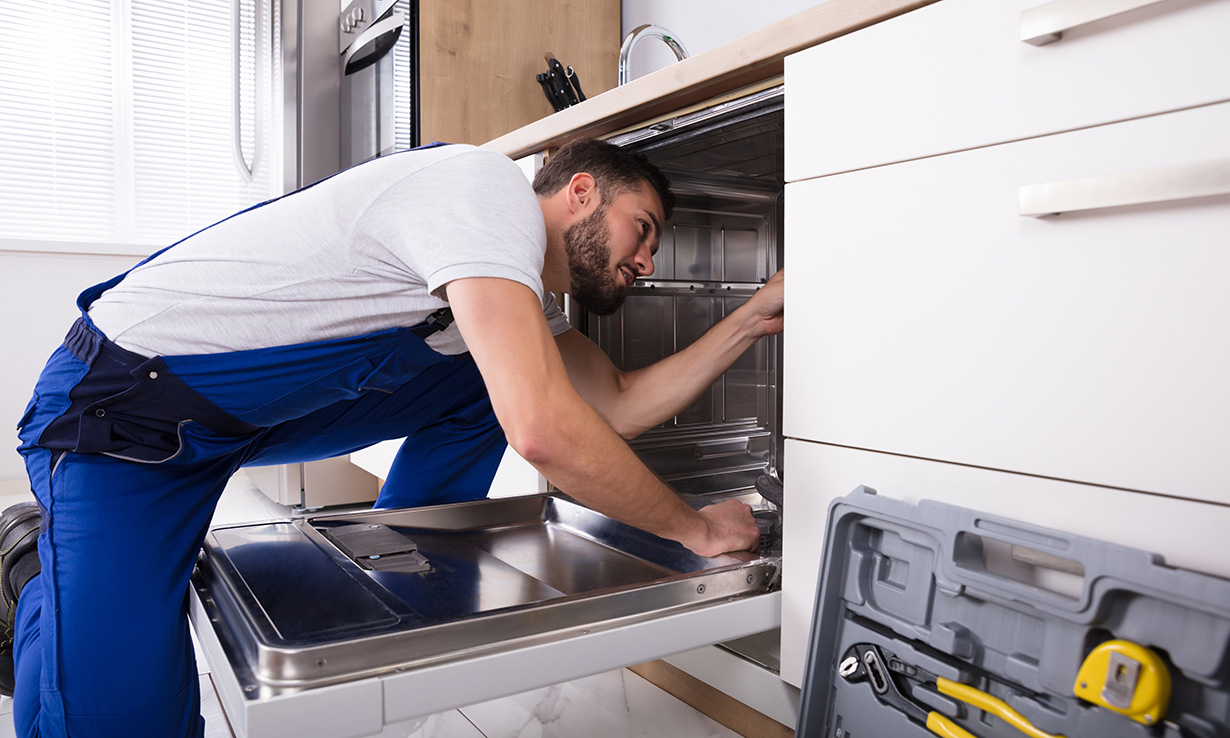Learn To Prevent The 6 Practices Destroying The Plumbing
Learn To Prevent The 6 Practices Destroying The Plumbing
Blog Article
Were you looking for selective information around Can Hard Water Ruin Your Appliances??

The key to long-term home appliances, unsurprisingly, is proper maintenance. There's no hard and fast rule that can ensure your plumbing home appliances a long wear, but you can protect against unneeded damage and repair services by avoiding bad plumbing practices.
You ought to quit doing these 6 things else you'll keep calling your plumber over for minor faults.
Purging whatever
Yes, your commode drainpipe results in the drains, but that does not indicate you need to dispose simply anything down the tubes. Many 'flushable' products are actually excellent clog starters, for instance dental floss. Asides keeping noticeable non-flushable materials like cords and also plastics out of your toilet, you should likewise stay clear of flushing cotton swab, menstruation products, wipes, daipers and also prophylactics down the toilet drain.
DIYing every little thing
With plumbing, a stitch in time really does conserve 9. You can avoid a fullblown plumbing emergency by calling your plumber at the correct time.
You might have learnt a few plumbing hacks from your daddy, yet you ought to understand where to draw a line and also call an expert. For example, you may be able to take care of a blockage on your own, however you should not attempt to alter a pipeline. You might mismatch pipes or overtighten a bolt, causing more injury and damages than you assumed. Calling a plumber is a secure and also cost effective choice.
Making use of excessive drain cleaner
Using a drainpipe cleaner greater than once or twice a month is a sign that something significant is going on within your pipelines. Currently, instead of encountering the primary issue, you choose a quick fix; a carbonated drain cleaner. Rightfully, a drainpipe cleaner will look after the obstruction, but at what expense?
The chemicals in a drain cleanser can hasten the rust of your pipelines. Add that to whatever underlying issue is creating the obstruction and you may need to a severe trouble on your hands.
If you experience too many clogs, call your emergency plumber rather than utilizing a drainpipe cleaner.
Pouring oil in the sink
We understand effectively getting rid of oil after a hearty meal is a discomfort. However simply pouring it down the drain can do long-term harm to your pipes. "The fat and oil can block your drain terribly sufficient to require you to call a plumber," describes Dawson. "Plumbing functions best when it's well taken care of-- not abused with grease."
Not changing your dish washer tubes
One simple way to ensure that you utilize your dishwashing machine for many years is to replace the tube a minimum of once in 5 years. This likewise requests cleaning device hoses.
Gradually, food particles, soap as well as grease can create blockages within your pipelines. Replacing them promptly will protect against any presure develop that can harm the internal functions of your dishwasher or washing maker.
A reinforced steel braided pipe does a great task of extending your equipment's usage time.
No winter safety measures
Severe climate condition misbehave for your pipes, especially if they're constructed from steel. You need to shield your subjected pipelines, as well as your water tank, even if you have a hot water heater. You ought to likewise turn off your garden tube shutoff and any other outside water networks. These networks are electrical outlets for chilly; you pipes can start to ice up from outdoors if you don't.
Ways That Hard Water Affects Your Plumbing And Appliances
CLOGGED DRAINS
Calcium and magnesium from hard water go beyond the drain screen that you clean. Each time water passes through the drain screen, the minerals attach to the sides of the pipes and other hard water deposits. As you continue to use the drain, more of the minerals attach to these deposits, eventually clogging the drain. Most drain cleaners remove only a small amount of the minerals, so the drain continues to run slow and back up water in your sinks, tubs, and showers.
DECREASED WATER FLOW
Do you have a faucet that runs slow even when you increase the water flow at the valve? Hard water deposits not only affect how water runs out of your home but also how water is delivered to your faucets. When calcium, magnesium, and minerals build up in pipes, it slows the flow of water and also builds up pressure inside the pipes that causes a backflow of water.
CORROSION
Calcium and magnesium have properties that are destructive to certain types of metal, many of which are used for plumbing in older homes. The minerals slowly break down the metal in your pipes. This can cause leaks, breaks, and even discolored water. If the corrosive section of the pipe is not repaired and the hard water deposits removed, entire sections of your plumbing may disintegrate. You may end up replacing a large portion of your plumbing system. Corrosion can happen on any metal surface, not just your pipes. Calcium and magnesium can also cause corrosion on your faucets, drains, valves, appliances, and fixtures.
REDUCED WATER QUALITY
You rely on your plumbing system to deliver clean water for cooking, washing your clothes, bathing, and many other daily tasks. Hard water has small particles of minerals in it. The water is safe to drink, but it is not ideal for your appliances. The minerals interfere with how soaps and detergents work to remove dirt, food, oils, and other substances. As a result, you must use more cleaning products, and your appliances have to work harder to clean dishes and clothes.
BROKEN PIPES AND LEAKS
Broken pipes and leaks from hard water happen in two ways. First, hard water is corrosive to the materials that are used in older homes. Eventually, minerals eat through the pipe and create a small opening in the side of the pipe. The opening grows larger and larger until you have a major leak on your hands. Second, the mineral deposits inside the pipes prevent water from flowing through efficiently. If the water is pushed through the plumbing at the same volume, pressure builds up, and eventually, the pipes and connections fail.
ENERGY EFFICIENCY
Hard water and mineral deposits in your plumbing affect the energy efficiency of your appliances, even the older models that do not meet modern standards. When you find a white residue on your dishes or your clothes don’t feel clean, you may find yourself running the wash cycle a second time. This requires more energy use and raises your utility bills. Some newer high-efficiency models of dishwashers and washing machines have sensors that detect when items are clean. Hard water deposits on the dishes or clothes will trigger the sensors and cause the appliance to run longer.
Another way that hard water affects your budget is the investment you make in products for hard water deposits. Rather than spending your money on higher utility costs and household products, invest in a water softening system from Beyer Plumbing Co. to prevent the problems of hard water.
WEAR AND TEAR
Hard water deposits build up on the connections, drains, and jets in your washer or dishwasher that circulate the water and clean your clothes and dishes. As a result, water may collect inside your appliances, creating the ideal environment for corrosion, mold, and other damaging substances. The components break down sooner, and your appliances may not last as long as expected. In some cases, the lifetime of an appliance may be reduced by three or four years simply due to hard water deposits. Using soft water in your appliances ensures that you get the maximum return on your investment.
https://beyerplumbing.com/9-ways-that-hard-water-affects-your-plumbing-and-appliances/

We were guided to that editorial about Leak Detection and Repair Without Destroying Your Home from an associate on a different web blog. Be sure to take the opportunity to distribute this article if you liked it. I praise you for your time. Please visit our website back soon.
Here Report this page